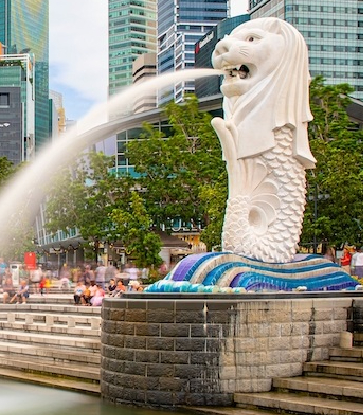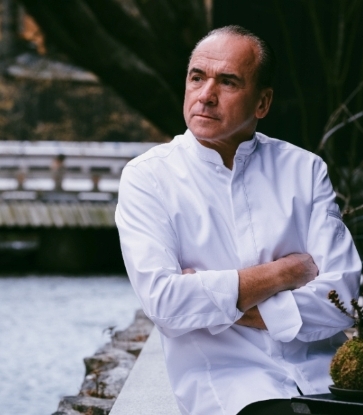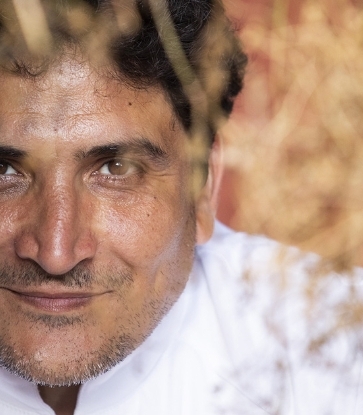Kenneth Culhane leads the kitchen team at Dysart Petersham and, for him, it’s all about working with maximum respect for sustainability. He told us about his journey, from growing up on a farm in Ireland to being Head Chef of a Michelin-Starred restaurant in London.

Growing Up
Fine dining wasn’t something we grew up with, in fact the first time I dined in a Michelin starred restaurant I was 22. My childhood, on a remote farm in southern Ireland, was pivotal towards instilling in me an understanding of good husbandry and of the top quality produce that only comes from a true appreciation of the particular qualities of the land, the soil and nature, now a natural harmony for me.I remember my mother and grandmother cooking, preserving and baking on the farm. There are no greater memories of rural Ireland than the morning call of the soda bread’s heartwarming aromas coming from the peat oven.

I remember the acts of warm hospitality and the spirit and character of the people – and the role of food in that; the importance of food and the table as a medium of celebration in tandem with the workings of the farm. Food was about community, about the earth and taking care of it. This was especially so in times of harvest such as making hay, silage or gathering peat from the bog, depending on what the land required.
Growing up I had a great interest in anything Darina Allen would do on TV. She had a cookery series called ‘Simply Delicious’, which was filmed on location on their farm, originally an Anglo-Norman castle built around 1450. I was captivated by how she would create wonderfully simple dishes from foraged and local ingredients grown on the farm.
Training
Working with Chef Guillaume Lebrun and the team at Two Star restaurant Patrick Guilbaud was a major turning point for me. This was the first time I had worked in a Michelin Starred restaurant and the years of training and mentoring had a great impact on my life.I was surrounded by a team of chefs who had trained with the most lauded chefs in France. Premium seasonal ingredients, food artistry, perfectionism, precision, discipline, restraint, finesse and the foundations of the classics of cookery were all part of the teachings.
This encompassed a respect shown to quality and methods of husbandry and embracing a can-do-anything attitude – every endeavour had to be your absolute best. This was my first introduction to fine cooking and nature communicated as an art form.

Influences
I’ve been very fortunate to have worked with amazing teams and people over the years. Winning the Roux scholarship in 2010 had a profound impact on my cooking and inspirations in life and our signature dish of Cornish mackerel, radish, champagne and ginger at the Dysart Petersham is inspired by the Roux family’s generosity.The family organise biannual educational trips around the world for the scholars. In 2012 we visited Japan, a life-changing experience with so many wonderful memories in traditions and culture. On my return I wished to eulogise these experiences in a dish, along with respecting the philosophical principles of Kanso which was a standout discovery during our stay.
The dish represents the ingenuity of Japanese culture, and how nature can be characterised and respected through a natural manner using humble ingredients to make something celebratory and special, with skill, harmony, balance and restraint. It has become one of our most popular dishes.
Over the years my wife and Mauritian family have also culturally introduced me to so many different ways to look at food. Visiting the island is always an education. They are such wonderfully warm, passionate people and there’s a commonality of experiences where food, respect and hospitality go hand-in-hand.
Inspiration
The Dysart Petersham is surrounded by incredible natural beauty; there are so many calm spaces that depict the vivid changes of the seasons around us. I really enjoy going for walks with the family in many of these places, such as Richmond Park and Ham House, which is wonderfully inspiring at any time of the year with its historic kitchen gardens. All this really helps me to reconnect and stay focused and it motivates my senses.
I also enjoy travelling, it’s something that as a chef is very important, and a profession where you can certainly explore the world, as you never stop learning. Travelling changes your consciousness and invigorates the senses.
Dining out and discovering new restaurants is also a passion. I particularly love the joy of experiencing a new landscape in food and wine. It’s a very special experience to have that ‘wow’ moment in hospitality. It’s essential as a chef to have the viewpoint of taste from the diners’ perspectives when composing menus and developing your sensory palate to do so.
The Future
I am looking to further evolve the Dysart Petersham, nourishing its individuality as a wonderful destination to dine, continuing to push the business forward towards earning more accolades and developing its international recognition; all underpinned by family values.
I was delighted to see the introduction of the green sustainability emblem in the guide this year, a responsibility to which we are fully committed as a team. We live in times that demand both reflection and action – we all have our roles to play in addressing the issues of anthropogenic climate change and the protection of ecosystems at a local level. I saw as I grew up on the farm the importance of reciprocity and interdependence in small communities.
We need to address our mono-cultural agriculture systems, thus at the Dysart Petersham we look at building on our commitments to working with people that are knowledgeable about the responsible food cycle, from farm to plate.
The most important questions we always ask are: is it sustainably/line caught; humanely raised/grass-fed/free range; driven by the seasons; bio-dynamically/intensively/traditionally/ naturally/organically/GM farmed; from a small-scale, independent producer – this is actually the easy part and only the beginning of the bigger picture.
What is needed is greater responsibility towards the welfare and survival of a rich diversity of animals and plants, of nature itself – of which we are a mere part. Greater understanding that this starts with the land itself and a greater perception of the need to preserve these for the future are vital.




















